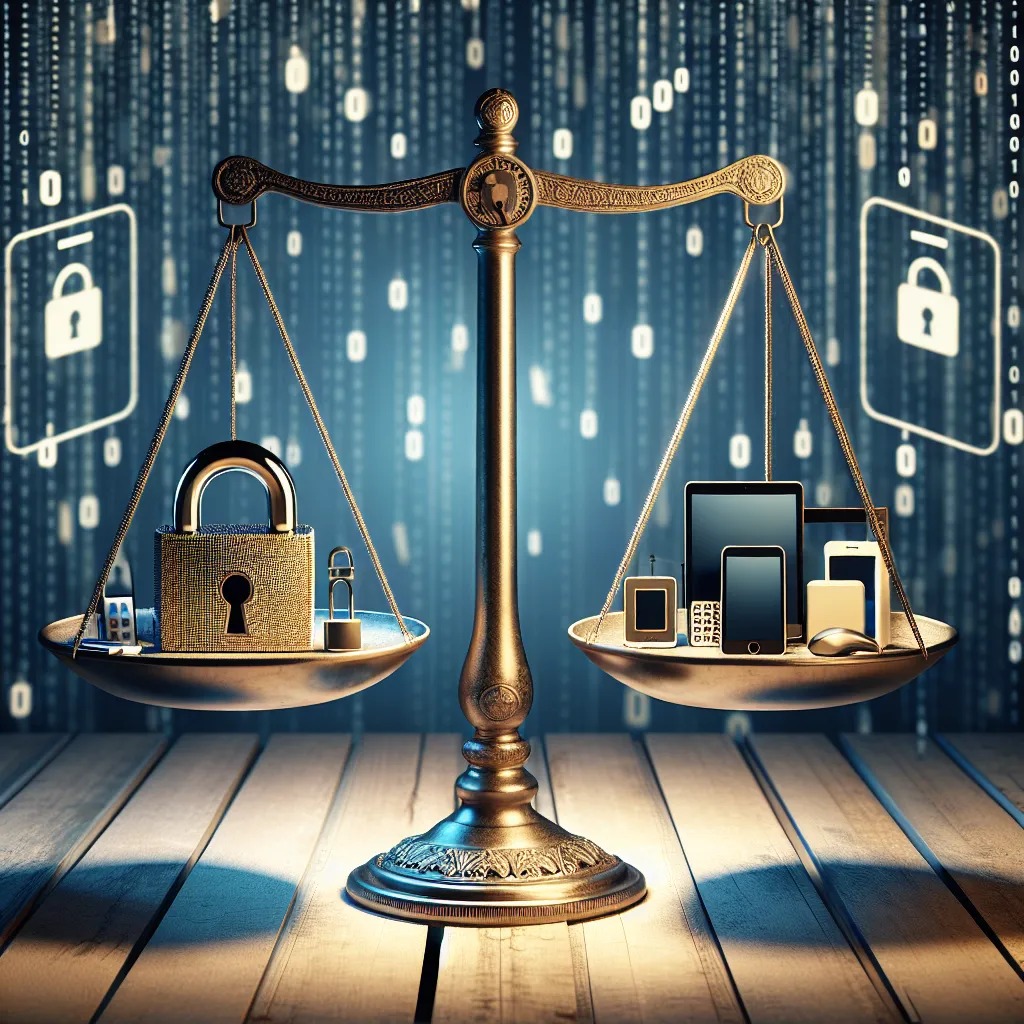As an IELTS Writing Task 2 expert, I’ve observed that topics related to “how technology impacts privacy” have become increasingly prevalent in recent exams. This trend is likely to continue, given the growing concerns about digital privacy in our increasingly connected world. Let’s explore this theme through a carefully selected essay question and provide comprehensive sample responses to help you excel in your IELTS preparation.
Analyzing the Essay Question
After reviewing recent IELTS exams and considering potential future trends, I’ve selected the following question for our analysis:
Some people believe that the development of technology has led to a loss of privacy. Others argue that technology has enhanced our ability to protect personal information. Discuss both views and give your own opinion.
This question perfectly encapsulates the debate surrounding technology’s impact on privacy. It requires candidates to consider both positive and negative aspects of technological advancements in relation to personal privacy, making it an excellent topic for demonstrating critical thinking and balanced argumentation.
Sample Essay 1: Band 7-8 Response
In the digital age, the relationship between technology and privacy has become a topic of intense debate. While some argue that technological advancements have eroded our privacy, others contend that these same innovations have bolstered our ability to safeguard personal information. In my opinion, while technology has indeed created new privacy challenges, it has also provided us with powerful tools to protect our data, ultimately leading to a net positive effect on privacy.
Those who believe technology has diminished privacy have valid concerns. The proliferation of social media platforms, for instance, has led to an unprecedented sharing of personal information, often with unforeseen consequences. Moreover, the increasing sophistication of data collection techniques employed by companies and governments has made it possible to track individuals’ online activities, purchases, and even physical movements with alarming precision. This constant surveillance has undoubtedly reduced the sphere of privacy that individuals once enjoyed.
However, proponents of technology’s positive impact on privacy make compelling arguments as well. The development of encryption technologies, secure communication apps, and virtual private networks (VPNs) has given individuals powerful tools to protect their digital communications and online activities. Furthermore, privacy-focused search engines and browsers have emerged, offering alternatives to data-hungry tech giants. Biometric authentication methods, such as fingerprint and facial recognition, have also made it more difficult for unauthorized parties to access personal devices and accounts.
In my view, while technology has certainly created new privacy challenges, it has simultaneously provided us with the means to address these issues more effectively than ever before. The key lies in education and responsible use of technology. As individuals become more aware of privacy risks and learn to utilize protective tools, they can harness technology to enhance rather than diminish their privacy.
In conclusion, the impact of technology on privacy is complex and multifaceted. While it has undeniably created new vulnerabilities, it has also empowered individuals with unprecedented control over their personal information. As technology continues to evolve, it is crucial that we remain vigilant and proactive in leveraging its capabilities to safeguard our privacy.
(Word count: 329)
 Technology Privacy Balance
Technology Privacy Balance
Sample Essay 2: Band 6-7 Response
The impact of technology on privacy is a hot topic these days. Some people think technology has made our personal information less safe, while others believe it has given us better ways to protect our data. I think both sides have good points, but overall, technology has more benefits for privacy than drawbacks.
On one hand, technology has created some new privacy problems. Social media is a good example. Many people share too much information online without thinking about the consequences. Also, big companies and governments can now collect a lot of data about us through our devices and internet use. This makes some people feel like they’re always being watched.
However, technology has also given us new tools to protect our privacy. For example, we now have strong encryption for our messages and emails. This makes it much harder for hackers or other people to read our private communications. We also have better password systems and things like two-factor authentication, which make our online accounts more secure. Some new apps and websites are designed specifically to protect user privacy, giving people more choices about how their data is used.
In my opinion, while technology has created some privacy risks, it has also given us more control over our personal information than ever before. The important thing is that we learn how to use these new privacy tools effectively. We need to be careful about what we share online and take advantage of the security features available to us.
To conclude, technology has both positive and negative effects on privacy. Although it has created some new challenges, it has also provided powerful solutions. As technology keeps advancing, we need to stay informed and use it wisely to protect our personal information.
(Word count: 290)
Key Writing Tips for This Topic
-
Balanced Approach: Ensure you discuss both viewpoints thoroughly before presenting your own opinion.
-
Specific Examples: Use concrete examples of technologies that impact privacy, both positively and negatively.
-
Vocabulary Precision: Employ topic-specific vocabulary accurately to demonstrate your language proficiency.
-
Cohesion and Coherence: Use appropriate linking words to connect ideas smoothly within and between paragraphs.
-
Concise Expression: Aim for clarity and conciseness in your writing, avoiding unnecessary repetition or wordiness.
Essential Vocabulary for Privacy and Technology Essays
-
Encryption (noun) /ɪnˈkrɪpʃən/ – The process of encoding information to protect it from unauthorized access.
-
Data breach (noun) /ˈdeɪtə briːtʃ/ – An incident where confidential information is accessed without authorization.
-
Surveillance (noun) /sərˈveɪləns/ – Close observation of a person or group, especially by an organization.
-
Biometric authentication (noun) /ˌbaɪəʊˈmetrɪk ɔːˌθentɪˈkeɪʃən/ – The use of unique physical characteristics to verify identity.
-
Cybersecurity (noun) /ˌsaɪbəsɪˈkjʊərəti/ – The practice of protecting systems, networks, and programs from digital attacks.
-
Anonymity (noun) /ˌænəˈnɪməti/ – The state of being unknown or unidentifiable.
-
Data mining (noun) /ˈdeɪtə ˌmaɪnɪŋ/ – The process of discovering patterns in large data sets.
-
Privacy settings (noun) /ˈprɪvəsi ˌsetɪŋz/ – Options that allow users to control who can access their information on social media or other platforms.
Conclusion
The intersection of technology and privacy is a complex and evolving topic that is likely to remain relevant in IELTS Writing Task 2. To prepare effectively, practice writing essays on related themes such as:
- The role of government in regulating technology and protecting citizen privacy
- The impact of social media on personal privacy and relationships
- Balancing convenience and privacy in smart home technologies
- The ethics of data collection and use by corporations
Remember to stay informed about current technological trends and privacy issues to enrich your essays with relevant, up-to-date examples. By mastering this topic, you’ll be well-equipped to tackle a wide range of technology and society-related questions in your IELTS exam.
For more insights on related topics, you might find these articles helpful:


